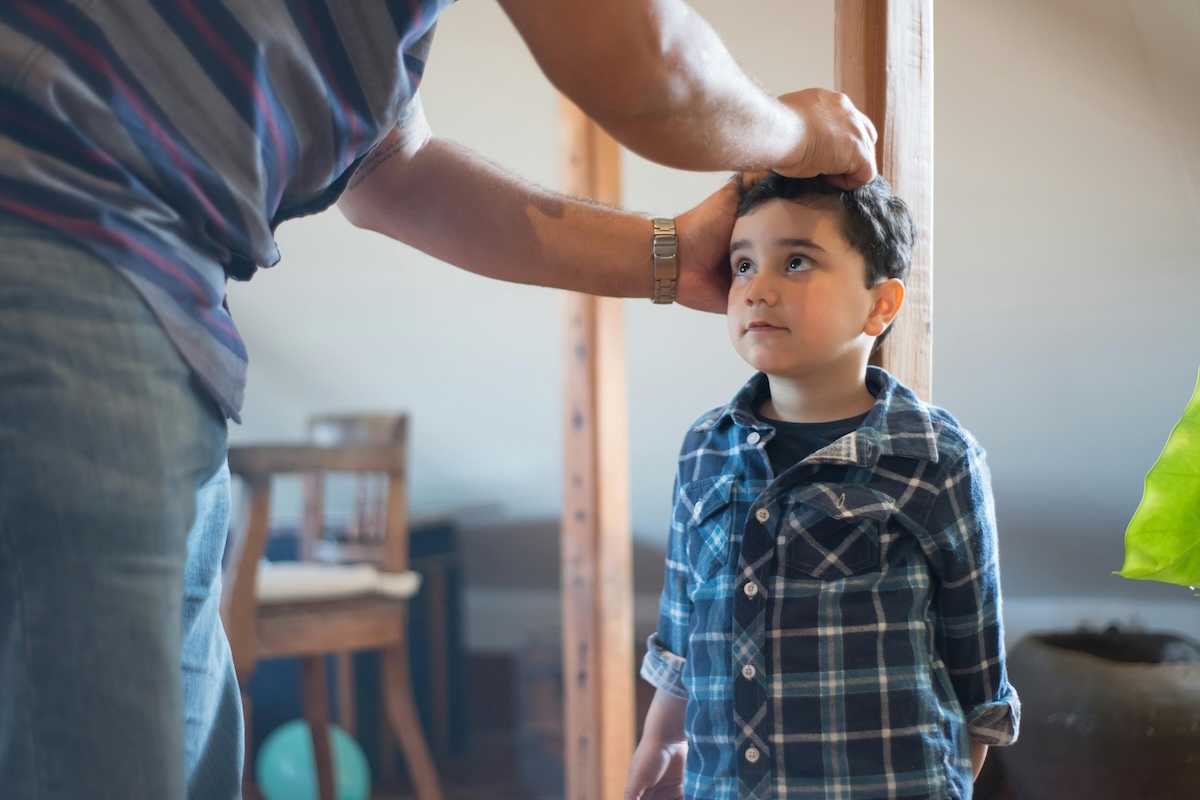My 2.5-year-old has always been very verbal, but in the past month he has started to develop a stutter. How should I react when he stutters to try to help him? I find myself interrupting and saying “ah ah ah” to try to stop him so he can start over, but that just sounds like I’m stuttering too, so clearly doesn’t help!
—Anonymous
Two and a half years old is such an exciting time for language development! Children are typically experiencing monumental growth in their understanding of the world, including how their own ideas, actions, and feelings can impact people around them. This growing comprehension usually leads to speaking in short phrases, in which they are combining at least two words to express a thought, as they simultaneously learn how to navigate communication breakdowns.
Some of these communication breakdowns happen as the result of “stuttering-like disfluencies” (SLDs), commonly referred to as disfluencies. When we are disfluent, it means we experience breaks or disruptions in our flow of speech. Maybe we trip over a word by repeating a sound or part of a word, repeat a phrase (I want… I want…), or add filler words (uh, um) to break up ideas when assembling our thoughts. Think of SLDs as a toddler’s brain sending out information faster than the mouth can keep up, especially at the beginning of a sentence. SLDs usually begin between the ages of 18 months and five years old.

However, there is a notable difference between an SLD and a stuttering moment (SM). Stuttering moments are typically prolongations of sounds (aaaaaaah), part-word repetitions (ah-ah-ah-all done), and broken words (all do-ne) that are accompanied by facial tension or stress and can include repetitive movements like eye blinking. Children who stutter will do so at least 10% of the time they speak, and can become frustrated and aware of their own interruptions. As you can probably imagine, kids do not want to stutter, so they may avoid saying certain words or display negative reactions to speaking in general. Recent studies have estimated that 2% of children in the U.S. ages 3 to 17 years old stutter, starting at 33 months on average, and 88% to 91% of them will “recover” within six months.
So what can you do as a parent in these moments? Hearing our kids begin to speak is so powerful, yet it can feel overwhelming when something sounds “wrong.” I value your wanting to help your son, but interrupting him also has the potential to increase his level of stress and frustration. We don’t want him to start over but to keep the flow of speech going, so do your best not to jump in and try to save him. (That seems counterintuitive when your job as his parent is to keep him safe, I know!)
Let’s reframe for this specific context — while he is speaking, your job is to remain calm and encouraging through your facial expressions, slow rate of speech, and tone of voice. If you are noticing that your son starts to change what he wants to say on a regular basis, if his face looks stressed or tense when he repeats the “ah” sound, and/or if the disfluencies are happening in more than 10% of his speech, I would talk to your pediatrician or seek out an evaluation with a speech-language pathologist.
Community Guidelines













Log in